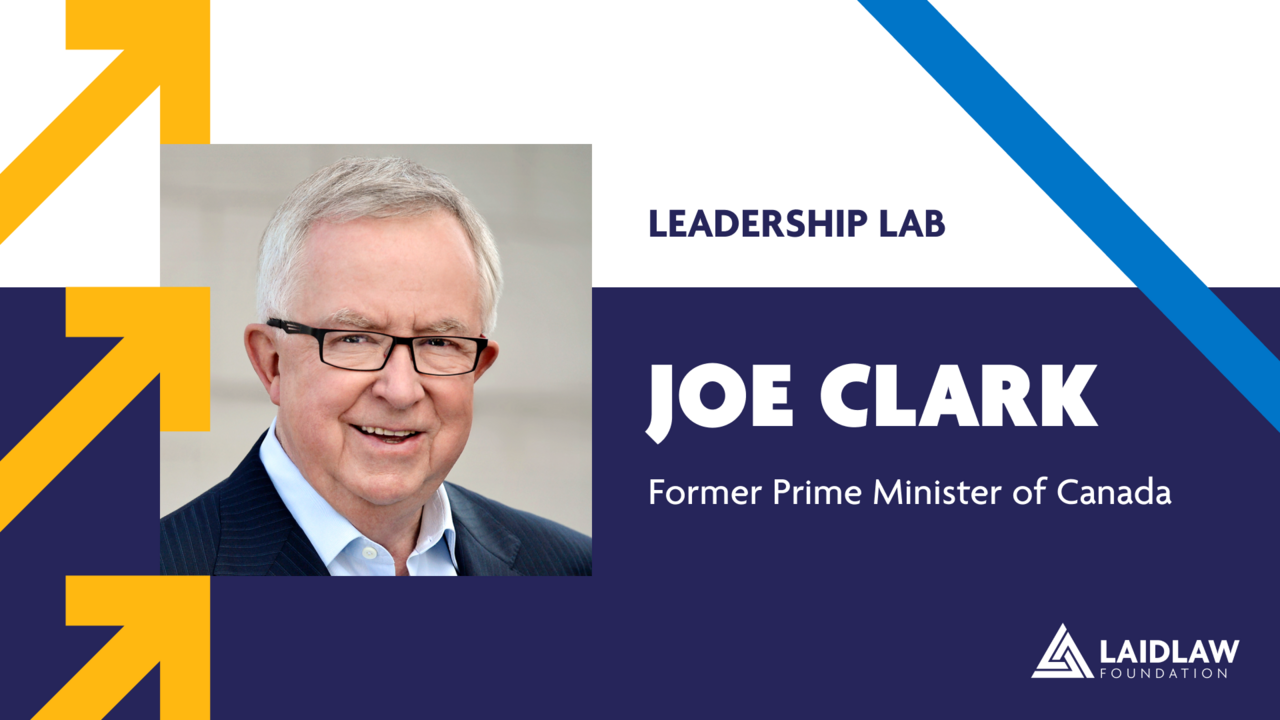Leadership Lab - Joe Clark

Summary
In this episode of the Leadership Lab series, Susanna Kempe, CEO of the Laidlaw Foundation, speaks with the Right Honourable Joe Clark, 16th Prime Minister of Canada and former Foreign Minister, about the realities of political leadership, governing through crisis, and choosing impact over visibility in a performative age. Clark reflects on his path to becoming Canada's youngest Prime Minister at 39, shaped by early setbacks and repeated returns to public office that reinforced his belief in leadership as service, not status. He built his effectiveness by relying on expert counsel and recognising that informed judgment matters more than individual authority. Drawing on episodes such as the Iranian hostage crisis and the “Canadian caper,” Canada’s response to the Ethiopian famine, and the international campaign against apartheid, Clark explores what it means to act decisively while staying grounded in integrity. He credits diplomats, civil servants, humanitarian organisations, and ordinary Canadians with driving courageous policy, particularly on refugees and humanitarian crises, and argues that flexible, humane judgment often matters more than rigid rule-following. He also reflects on Canada’s character as a relatively fortunate nation with an obligation to help where it can. Building on ideas from his book How We Lead, Clark warns against “megaphone diplomacy” and performative politics that value profile over persuasion. He discusses the risks posed by noisy media ecosystems, the changing nature of political parties, and the example set by highly visible leaders on the global stage. For Laidlaw Scholars, his message is clear: cultivate humility about what you do not know, surround yourself with people who will speak uncomfortable truths, and focus on constructive conversations that bridge divides. This conversation invites emerging leaders to pursue power as a means to responsibility, not self-importance, and to lead with calm, courage, and moral clarity in an increasingly fractious world.
Time Codes
00:28 – How did your leadership journey begin?
03:46 – Becoming the youngest leader of the Progressive Conservatives
06:38 – Becoming Prime Minister at 39
08:17 – Did youth and fresh perspective help you navigate difficult situations?
09:57 – The Iranian hostage crisis and the “Canadian Caper”
12:09 – Lessons in acting decisively and leading through crisis
13:07 – Ethiopia’s famine and sanctions against apartheid South Africa
16:37 – Working with difficult regimes while maintaining integrity
17:37 – What guardrails help leaders act with integrity while saving lives?
20:15 – How We Lead: megaphone diplomacy vs. persuasive politics
23:30 – The dangers of highly performative political leadership
26:29 – Advice for Laidlaw Scholars on pursuing impact over power
31:15 – Leaders from around the world who stood out
34:36 – Traits of truly great leaders
39:50 – Advice for next-generation leaders seeking to make a difference





Please sign in
If you are a registered user on Laidlaw Scholars Network, please sign in